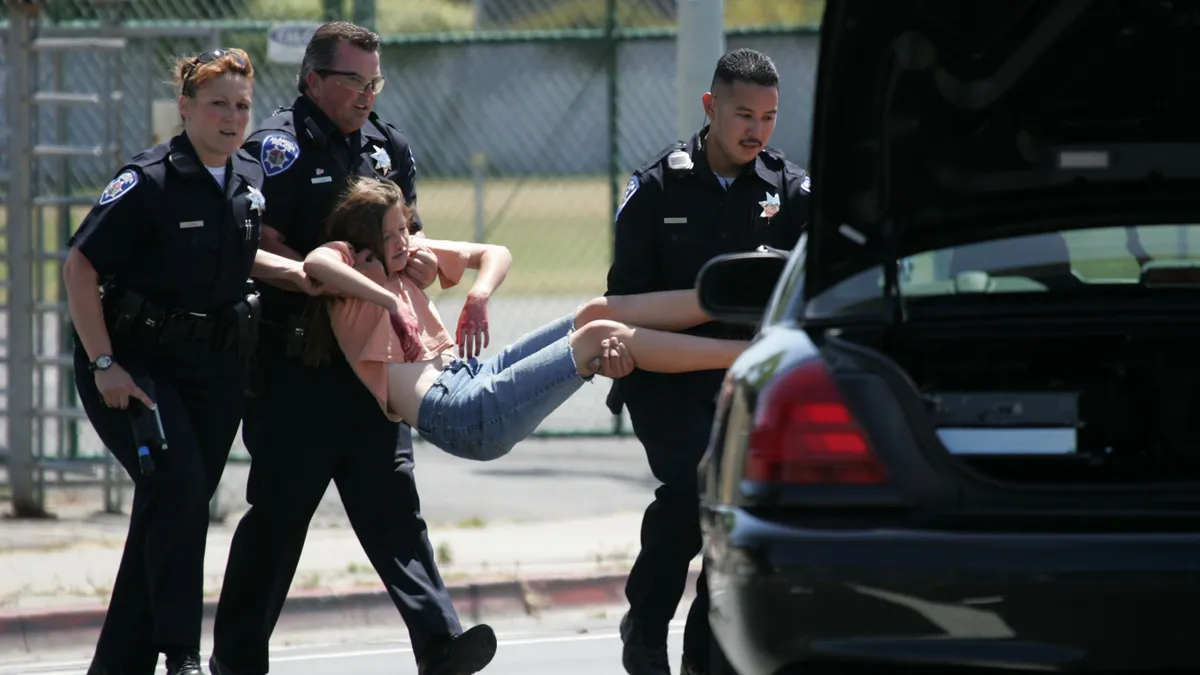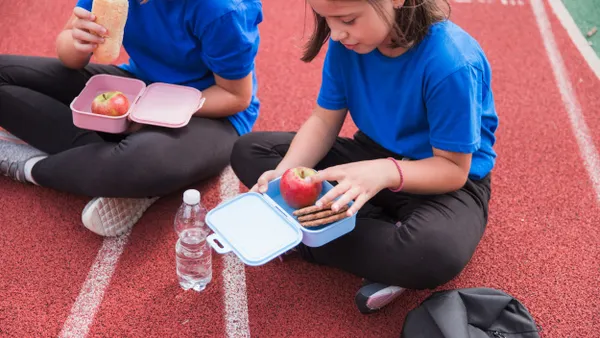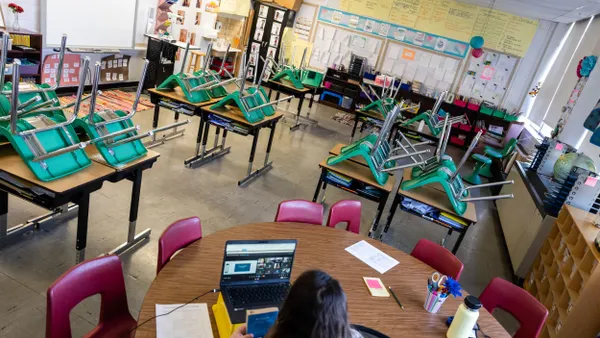Dive Brief:
-
Starting this school year, New York school districts will be banned from running realistic active shooter drills — such as using actors, props, simulations or tactics mimicking a school shooting or other incidents of violence — during the school day or at school activities.
-
Any realistic drills outside those parameters require parents' or guardians' written consent, according to a school safety measure that kicks in on Wednesday. The New York State Education Department Board of Regents, which oversees K-12 schools in the state, approved the measure unanimously July 15.
-
Schools will instead be required to ensure that drills are "trauma-informed" and conducted in a "developmentally and age-appropriate manner." Students and staff must be informed in advance when a school is conducting a drill.
Dive Insight:
The changes are effective July 31 and kick in at the beginning of the 2024-25 school year.
"In recent years, concerns have been raised nationwide about the unintended trauma or harm to students, staff, and/or families that may result from drills that are not communicated as being practice rather than an actual emergency," according to a July 11 memo on the amendment from Angelique Johnson-Dingle, deputy commissioner for P-12 instructional support at the New York State Education Department.
"This is pronounced when a drill is conducted that includes elements to simulate a possible emergency," Johnson-Dingle said.
The memo cited tragedies at Columbine High School and Sandy Hook Elementary School as propelling school safety initiatives in the state, including the Safe Schools Task Force and the School Safety Improvement Team.
However, while deadly mass shootings have prompted gun violence prevention and safety measures on school grounds, there has also been a growing awareness to ensure those methods are trauma-informed.
Active shooter drills are conducted in about 95% of American K-12 schools, according to 2017 data from the National Center for Education Statistics. In a 2023 Ipsos poll of K-12 parents, a majority of respondents said they support at least one active shooter drill per year at school starting as young as kindergarten. More than half said their child had experienced one such drill at school.
A majority (78%) also supported warning students about drills ahead of time, and fewer supported scenarios like banging on the outside of classroom doors (42%) and using the sound of guns or gunshots (36%).
Everytown for Gun Safety, which advocates for gun violence prevention including on school grounds, recommends against active shooter drills that can cause "distress and sometimes lasting trauma."
"Schools should carefully consider these impacts before conducting live drills that involve students," the group says on its website.
Administrators are under pressure to prepare for active school shootings, according to a 2021 study on the psychological impact of school shooter drills published in the Humanities and Social Sciences Communications.
Drills can range from general lockdowns to simulations including masked shooters and gunfire, the researchers said. "However, the broad and lasting impact of these drills on the well-being of school communities is poorly understood."
The study found that anxiety, stress and depression increased by up to 42% following active shooter drills. However, it also found that such drills increased civic engagement by up to 106%.
Researchers in that study said their findings could indicate that proactive school safety strategies rather than active shooter drills may be more effective and take less of a toll on the mental health of K-12 school communities.












